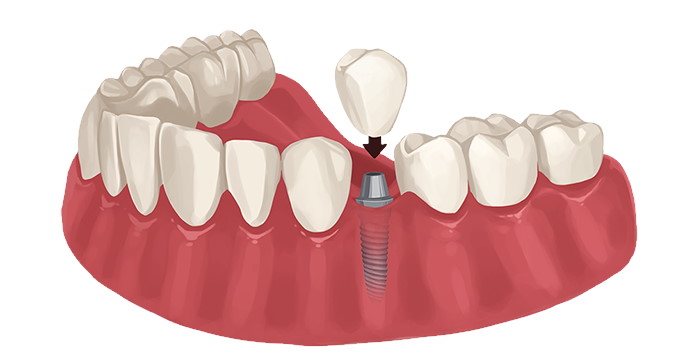Dental implants are a popular and effective solution for replacing missing teeth. They offer many benefits over traditional methods like dentures, including improved appearance, speech, and chewing ability. This blog post aims to be a comprehensive guide to dental implants, covering everything from what they are and their benefits to cost and the procedure itself.
What are Dental Implants?
Dental implants are small, screw-like posts made of titanium that are surgically placed into the jawbone. They act as anchors for artificial teeth, which are custom-made to match your natural teeth in color, size, and shape. Implants are the closest thing to natural teeth, offering a long-lasting and stable solution for tooth replacement.
Benefits of Dental Implants
- Improved Appearance: Dental implants look and function like natural teeth, restoring your smile and boosting your confidence.
- Enhanced Speech: Traditional dentures can slip and slide, affecting your speech. Implants are permanently fixed in the jawbone, allowing you to speak clearly and confidently.
- Better Chewing Ability: Implants allow you to chew food more effectively, improving your digestion and overall health.
- Durability: Dental implants are made of strong and durable materials, lasting for many years with proper care.
- Improved Oral Health: Unlike dentures, which can contribute to bone loss in the jaw, implants actually stimulate bone growth, promoting better oral health.
Factors Affecting the Cost of Dental Implants
The cost of dental implants can vary depending on several factors, including:
- The number of teeth being replaced: Replacing a single tooth will be less expensive than replacing multiple teeth.
- The need for bone grafting: If your jawbone has deteriorated due to missing teeth, you may need bone grafting before getting implants. This can add to the overall cost.
- Location: The cost of living in your area can affect the cost of dental implants.
- Surgeon’s experience and qualifications: More experienced and qualified surgeons may charge more for their services.
The Dental Implant Procedure
The dental implant procedure typically involves several steps:
- Consultation: During the initial consultation, the dentist will discuss your medical history, examine your mouth, and take X-rays to determine if you are a good candidate for implants.
- Placement of the implant: The surgeon will make a small incision in your gum and implant the titanium post into your jawbone. The area will then be stitched closed and allowed to heal for several months.
- Abutment placement: Once the implant has integrated with the jawbone, a small connector piece called an abutment will be placed on top of the implant.
- Crown placement: Finally, the artificial tooth, or crown, will be attached to the abutment, completing the dental implant restoration.
Caring for Dental Implants
Dental implants require good oral hygiene practices just like natural teeth. Brushing twice a day, flossing daily, and regular dental checkups are essential for maintaining the health of your implants and surrounding tissues. To learn more about effective dental implants aftercare, explore our blog for comprehensive information on dental implants aftercare.



